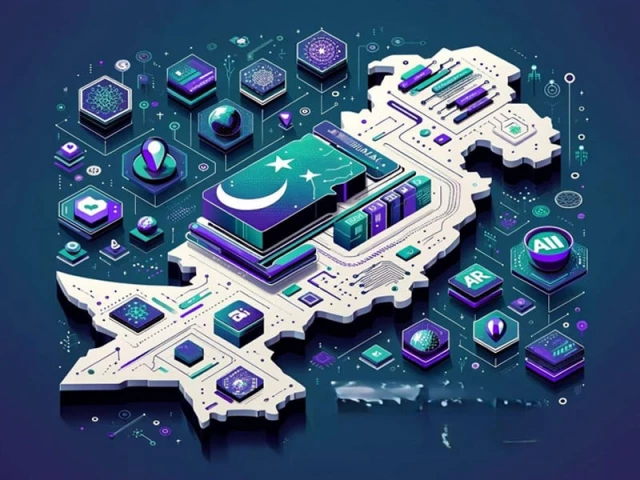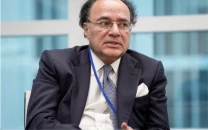Pakistanis among top AI users
Govt faces calls for ethical guidelines as experts warn of global job displacement, weak critical thinking

As Pakistan emerges among the top five global users of Artificial Intelligence (AI) tools, its rapid adoption is reshaping jobs and the economy, prompting urgent calls for ethical guidelines and pragmatic policy frameworks.
According to a survey published by the Schwartz Reisman Institute for Technology and Society, the Pakistani nation is ranked fourth worldwide for utilising AI tools and applications, as per a survey of 21 countries.
The study shows Pakistanis hold a largely positive outlook on AI, though its rapid adoption is also reshaping jobs and sparking calls for ethical frameworks and policy interventions.
India led the survey with 43% of respondents expressing a "very positive" view of AI, followed by Kenya (29%), Brazil (27%), and Pakistan (26%). Among Pakistani respondents, 39% described AI tools as fairly positive, 22% as neutral, 8% as fairly negative, and 5% as extremely negative.
Experts believe emerging economies like Pakistan are more optimistic about AI due to hopes of job creation, economic growth, and improved public services. However, industry leaders caution that the technology, while efficient, is displacing jobs in IT and service sectors and weakening critical thinking among workers who are overly reliant on AI apps.
In contrast, advanced economies such as the US, France, and Australia reported the highest shares of negative sentiment. For instance, 34% of US respondents had either a "fairly" or "very negative" view of AI. Such scepticism might be tied to political divides, concerns about misinformation, or fears of job loss in white-collar industries.
Pakistan is not only among the leading users of artificial intelligence (AI) tools but has also developed its own indigenous chatbot, Zahanat AI, available in local languages. The country's growing interest in AI was highlighted at a recent United Nations Educational, Scientific and Cultural Organisation (UNESCO) dialogue, "AI for Humanity: Ethical and Inclusive AI in Pakistan", which brought together over 25 key stakeholders from the private sector, academia, civil society, and technology institutions to discuss the AI innovation ecosystem under the National AI Policy.
Mehwish Salman Ali, Co-Founder of Zahanat AI, stressed that ethical and inclusive AI is central to Pakistan's digital future. She highlighted the need to equip citizens with AI skills to unlock the country's demographic potential, noting that without digital readiness, Pakistan's 224 million people risk remaining untapped assets.
At the CIO Global 200 Summit, Integration Xperts CEO Umair Azam warned that while AI boosts efficiency, its misuse undermines credibility and critical thinking among workers. He called for organisational "AI champions" and strong policy frameworks to ensure ethical use.
With over 146 million broadband users, Pakistan has immense AI potential. Yet, a survey by P@SHA revealed companies are reducing hiring in some areas as AI replaces human roles, raising concerns about jobs, skills, and long-term societal impacts.




















COMMENTS (1)
Comments are moderated and generally will be posted if they are on-topic and not abusive.
For more information, please see our Comments FAQ